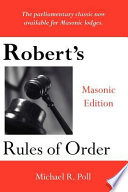 | Daniel J. Hulsebosch - 2006 - 496 pages
...should not be a judge in his own cause. This became a bedrock common-law principle. But Coke added that "when an Act of Parliament is against common right...repugnant, or impossible to be performed, the common law will controul it, and adjudge such Act to be void," a These cases were, in an informal way, constitutional... | |
 | Patrick Melin - 2005 - 626 pages
[ Sorry, this page's content is restricted ] | |
 | George Anastaplo - 2005 - 918 pages
...cases the common law will controul Acts of Parliament and adjudge them to be utterly void; for where an Act of Parliament is against common right and reason...repugnant or impossible to be performed, the common law will controul it and adjudge it to be void." See James Kent, Commentaries on American Law (New York:... | |
 | Michael R. Poll - 2005 - 187 pages
...in the seventeenth century even Parliament was under the law so that if it were to enact a statute' 'against common right and reason, or repugnant, or impossible to be performed" the common law would hold that statute void. In the reign of Henry VII the English Court of Common Pleas actually... | |
 | Jeffrey C. Alexander Lillian Chavenson Saden Professor of Sociology Yale University - 2006 - 815 pages
...for any of the parties. ... In many cases, the common will control Acts of Parliament, and sometimes adjudge them to be utterly void: for when an Act of...repugnant, or impossible to be performed, the common law will control it, and adjudge such Act to be void.64 Without such a mandate for court review, constitutional... | |
| |